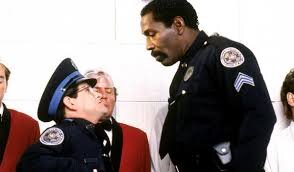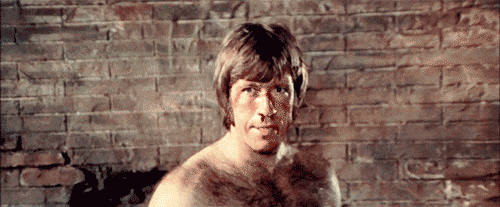Football ...
Basketball ...
Baseball ...
Other Sports ...
Futbol ...
🤫995🤫 ...
Gambling ...
Movies & TV ...
Music ...
Hobbies ...
Lulz ...
Food & Travel
...
Daily Texan ...
Business & Markets ...
Cloak Room ...
Help ...
For Sale ...
Board Discussion ...
Advertise...
Tailgate Donations
All Activity
- Past hour
-
After Georgia’s first couple of TD drives we adjusted and started playing more aggressive coverages. That's when UGA started using WR shifts to get us out of alignment and create confusion/miscommunications. They also took advantage of our aggressiveness by rolling out safety valves to the open flats whenever we tried to blitz.
-
You don't hold Sark responsible for our current QB in system being far worse than a non-starter from Troy. You think we should get more players from the portal because there are issues with Texas current players at multiple positions being better than the talent taught outside the system. Its okay if you like getting talent not taught by our staff because its obvious that players coached elsewhere have better skills and fundamentals. However, if you can't understand why players from outside the system being preferential to players evaluted and developed in the system at QB, OL, DB and RB is a major coaching issue I can't help you.
-
He said that before anybody saw this team in a live action game. If you still believed that after the Ohio St game you have no one to blame but yourself.
-
Hungary looking like they will advance...Ireland has to outright win and they're down 2-1
-
I often remind myself that I’m not here for a documentary on oil exploration and production, I am here to see shit go south for Billy Bob for twelve hours, and then his wife calls. I just give him the Jeremiah Johnson head nod.
-

Official "Fuck this stupid ass-commercial" thread
HornOnTheBayou replied to Prepuce of Doom's topic in Movies and TV
Did no one at Lexus chime in during the marketing meeting and say that Landslide might be a bad song to convey family holiday happiness? -
Here's the thing. I think if Sark was purely OC, he could do it. But problem is, he needs a functional OL that can actually get some run game going. He needs a good back and a true #1 WR. Player personnel evaluation is THE job of the HC and he failed that this off season. Here's what I would do in the off season: 1. Transfers for OL, change evaluation approach to "big humans" 2. Fix RB room (will that be Cooper?) 3. Off season need to be even more physical 4. Take all the money from Wingo and Moore and PAY CAM COLEMAN. Need to have that one true WR#1. 5. Fix DB coaches. 6. Get rid of Banks (because he's clearly not doing his job on the special team front while Sark is devoted to play calling during the games)
-
Honestly for a second when they completed the onside kick, when he started celebrating I thought he was doing that gesture with his nuts like they were too big lol
-
Perhaps it's just because my team is shitty, but the playoffs don't excite me at all this year. Lots of mediocre football teams.
-
Once again we play the game: real or not real?
-
Indiana maybe. Fuckabuncha Notre Damn.
-
-
This thread did not age well.
-
Indiana and Notre Dame.
-
On his claim on preparing for the onside kick, has anyone looked at the prior couple of kickoffs? I bet they show our front dropping back too soon and someone on the uga staff noticed and let Kirby know the opportunity is there. And of course we didn't self scout and realize we were doing anything wrong because, well, we're not the most detail oriented staff.
-
I have three major concerns with bringing in an OC. First, Sark would still be in charge of practice schedule and keeping the NFL style and a clear lack of focus on fundamentals would likely continue. (No development changes)Next, there is a massive flaw in talent evaluation and that ends on Sark's lap. Bringing in a new OC doesn't fundamentally improve that because Sark tbe genius is still making the call. (No evaluation changes) Finally, its the HC who determines how and when accountability is met out for players who consistently fail. Wingo is the clearest recent example of making massive mistakes and being right back in next series, but there are far too many just like him. This won't change under a new OC. Hence, discipline issues will most likely continue which is a massive one for this one. Close to the most penalized team in the nation.
-
Ukrainian intelligence is warning that a Russian Lancet drone is prowling the sky, loitering above Kramatorsk, like a heron poised over a fish pond, ready to strike. A laptop shows multiscreen images of medics racing through shredded forest, Russian soldiers in Ukrainian sights, bunkers being blown up – everyday terror. This is the future of war – and the West isn’t ready for what may be coming in an open conflict with Russia: mass casualties and a transformation of the battle beyond anything that Nato’s armies are training for. The laptop feed is for Rebekah Maciorowski, an American volunteer paramedic who runs the medical operations, evacuation and training for an entire battalion of men and women on Ukraine’s eastern front, under its 3rd Brigade. In a conventional war, she would be a major. In this conflict? She has no idea what her rank is and cares even less. But the revelations from this frontline soldier, one who has the rare claim to have shot down an incoming Russian drone attacking her patients, are chilling. “You have had encounters with Nato training teams. You’ve talked to Nato when you’ve been back in Europe. Do you think that they’re ready for the next war with Russia?” The Independent asks her. “No. No, I’m honestly a little bit terrified,” she replies – after more than 40 months at war here. She goes on to explain: “If you were to talk to Nato military officials, they would reassure you that everything is under control, they’re well equipped, they’re well prepared. But I don’t think anyone can be prepared for a conflict like this. I don’t think anyone can. “And what’s concerning to me is, while they’re offering training [in Europe for Ukrainians], I think it would do them well to also take some information and training from the Ukrainians.” Maciorowski has undergone training with Nato forces in the last year and says what they taught was relevant to Afghanistan and Iraq – not Ukraine. “When I went to train with Nato, the factor of drones was not really filtered in. It was very much the tactics that were learnt in the previous war. And these tactics now do not apply because you’re not making a linear assault. “Everything has changed with drones. And I don’t think it was factored in, at least not in this training,” she says in her secret medical evacuation headquarters. US medic Maciorowski and her team tend to injured Ukrainian soldiers in the Donetsk region (The Independent) Her teams evacuate wounded soldiers using quad bikes because armoured ambulances are now death traps, while quads can race between forests and dugouts trying to avoid drones. But her team takes heavy losses. Over the last week, a top medic, callsign Viking, was killed on a rescue mission east of Slaviansk. A few weeks before that, another driver was blown up by a drone. “I don’t see other Europeans coping with this,” she says. Nato’s leaders and intelligence agencies agree that Europe, especially, is already involved in a hybrid war with Russia. This includes propaganda to undermine democracy, cyber attacks, sabotage and assassinations. Lately, it has included probing attacks inside Poland and Estonia by Russian aircraft and continuous challenges at sea. An outright war may never happen. It may also be inevitable. Vladimir Putin has made it clear he wants to force the Baltic states back under Russian rule and has designs on all of eastern Europe in countries once dominated by Moscow. Ukrainians and Georgians know that when he says such things, he invades. If it came to a war, Russia has experience in modern combat that only Ukraine shares. An officer operating in Pokrovsk, where Ukraine says Russia is concentrating 150,000 men on trying to break through “We are changing the structure of the war on the go,” says Oleksandr Yabchanka, commander of a drone unit in the Da Vinci Wolves, part of the 59th Brigade. “There is bad news for Ukraine and Europe. Russia is adapting just like us. It is a colossal threat and very underestimated in Europe.” A spokesperson for the British-led programme Operation Interflex said that 61,000 Ukrainian soldiers had been trained for “putting them in the strongest possible position as they resist ongoing Russian attacks”. He said that Ukrainian military experts and drone operators had served as consultants to train soldiers going to war and that 91 per cent of Ukrainian soldiers who completed Nato’s basic training “feel more confident of their survivability at the end of the training”. However, a recent study by Jack Watling at the Royal United Services Institute (Rusi) warns that Nato needs to catch up with understanding that war has changed. The advent of small, deadly drones, often flown with first-person vision (FPV), frequently guided by fibre-optic cables, and capable of pinpoint accuracy far beyond what were considered front lines, has transformed conflict. Nato doctrine focuses on what it calls “combined arms manoeuvre”. This means an emphasis on the concentration of aircraft, armour, infantry and artillery with the aim to surprise and overwhelm an enemy. That doesn’t work any more. Dr Watling explains that “pervasive networks and sensors have made the ability to achieve surprise difficult”. Known as battlefield transparency, the modern surveillance of battlefields means that an unexpected attack is almost impossible. On top of that, “the ubiquity of precision weapons” makes concentrated forces vulnerable to “rapid attrition”. Armoured vehicles, engineering equipment, electronics warfare kit – it can all be spotted and picked off with ease, and over long distances. This means that the front lines are wide, deep, shattered and almost empty of infantry. Nato’s method is to take on mass attacks by the “near peer” forces of Russia. But Russia’s tactics no longer concentrate on mass – the weight of numbers in men and arms used against Ukraine three years ago. Now, Ukrainian forces are being attacked with long-range glide bombs. Russian drones hunt out Kyiv’s UAV teams in their bunkers and force them away from their forward lines. And above all, the lines of logistics are pounded with terrifying accuracy. Russian soldiers hide in dugouts, trying to avoid drones, near Zaporizhzhia, southern Ukraine (The Independent) As a result, small groups of two or four Russians covertly sneak into locations on the front lines to try to hold bunkers and dugouts while Ukrainian drones patrol overhead. The soldiers use blankets designed to muffle their thermal images, sometimes held above them on poles, to get into locations where they may be embedded for weeks or months. Ukrainian troops do the same. And now that their lines of communication have been cut, they rely entirely on supplies of food and ammunition, as well as medical supplies from drones in the air or on the ground. In Afghanistan, 99.2 per cent of British army casualties who were evacuated to the main Helmand hospital at Camp Bastion survived – mostly because they were taken there from the front lines within the first “golden hour” after injury. In any war with Russia, it could be days or weeks before a severely wounded Nato soldier could be evacuated. And the numbers injured in a single incident or a drone blast are likely to be high. “The wounds, the injuries, are catastrophic,” explains Maciorowski. “And they’re multiplying because the radius of impact for a drone that drops a grenade or explosive device is massive. “So you can have an entire group that’s taken out, all of them injured in one drop. We’re not seeing that hand-to-hand combat so much now. “Now we’re looking at prolonged field care; guys who are unable to evacuate and giving medical advice over a radio, making sure that when guys come to the unit, every soldier is trained like a medic because we don’t have enough medics, and there’s no guarantee that they can get to the wounded soldier in time. “So every soldier needs to be a highly trained medic… to treat himself and others around him.” Medics of Da Vinci Wolves Battalion treat Ukrainian soldiers injured during fighting near Pokrovsk in August (AP) Nato’s regular armed forces are rarely, if ever, trained how to treat themselves for long periods with antibiotics and intravenous drips. And, above all, they are unprepared for the potential mass casualties that Nato forces would face in a conflict with Russia. “We almost can’t comprehend the scale of those losses,” says Ed Arnold, a former British Army officer who is now with Rusi. Gangrene among Ukrainian soldiers is commonplace because they are stuck on the front lines for so long. Britain’s biggest mobile field hospital has a capacity of only 80 general beds and 10 for intensive care. In a Ukraine-type war where the UK, and Nato, can expect hundreds of casualties every day, the capacity to cope is just not there. “We should have Ukrainians training [British officers] at Sandhurst (Royal Military Academy) at the moment,” adds Arnold. “There should be a resident Ukrainian platoon, which regularly rotates, giving us the actual download on what’s going on.”
-
That’s not what I said at all. You took what I said and ran off somewhere else with it. Texas should recruit the best players AND continue to look at the portal for players to compete with your home grown talent. It’s not necessarily an indictment on your development. That’s the Dabo Sweeney line of thinking. Players are all on different development timelines and you want to make sure you are not limiting your roster. Sark punted on offensive line, corner back and running back this offseason and we are paying the price now for it.
-
GA Tech would be super Cinderella, but they have no shot at all.
-
Indiana or Georgia Tech Fuck everyone else
-
That’s because he has one foot out the door
-
That's what I said. People before were saying OU winning gives Texas a better chance at the CCG. I was like fuck OU they should always lose.
Football ... Basketball ... Baseball ... Other Sports ... Futbol ... 🤫995🤫 ... Gambling ... Movies & TV ... Music ... Hobbies ... Lulz ... Food & Travel ... Daily Texan ... Business and Markets ... Cloak Room ... Help ... For Sale ... Board Discussion ... Subscribe!... Donate!... COOKIE MONSTER!

















